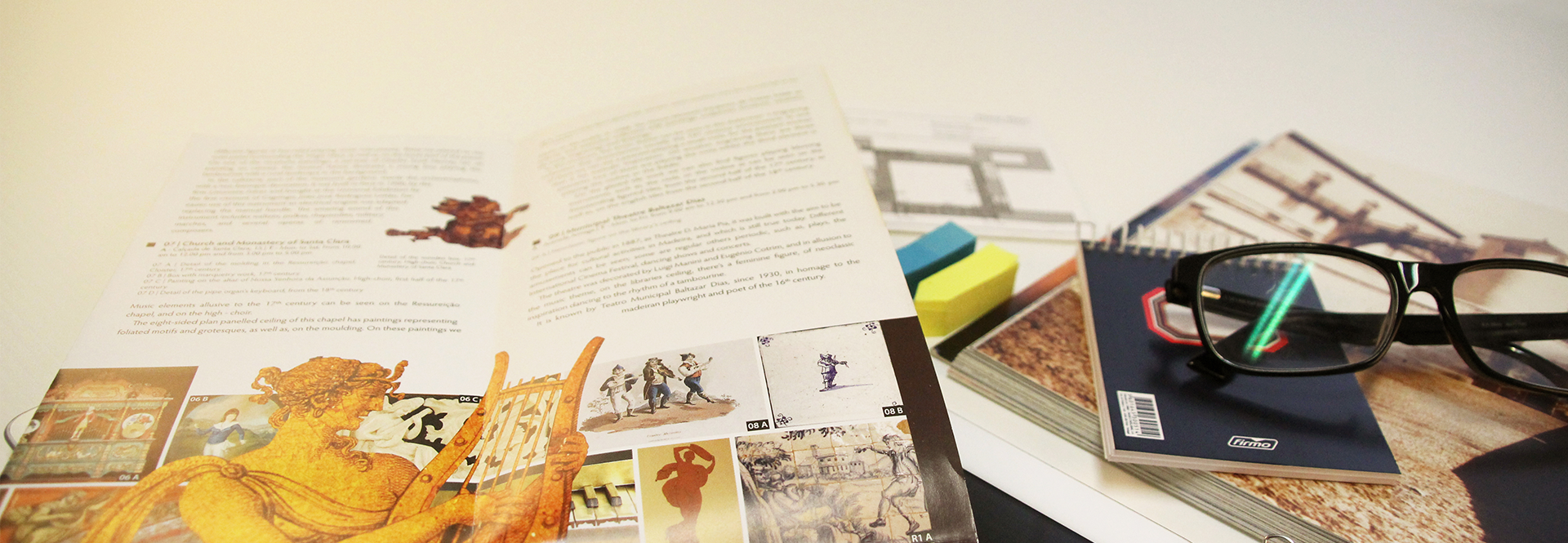
Master's Degree in Cultural Management
This Master’s degree provides solid scientific training, allowing the development of basic theoretical concepts necessary to the growth and management of cultural organisations, in areas such as cultural heritage, artistic activities and cultural industries. It is based on an advanced and multidisciplinary training in cultural management.
Throughout the degree, the main skills to be acquired are: the ability to identify the importance of the cultural sector as a creativity factor, and as an economic and social development factor; a deepened knowledge in the practice of cultural management; to be positioned in the cultural management sector, in a balanced context between patrimonial, artistic, cultural, political and economic parameters;
Ability to manage, in an autonomous and innovative manner, structures or cultural and artistic projects, in broader and interdisciplinary contexts; ability to investigate communication and valuation actions, as well as promotion actions of policies and cultural product; to be in permanent upgrading in the scientific field of applied management to culture and cultural heritage.
The master’s degree in cultural management has been recognized, by order of the Secretary of State for Education and School Administration on the 8th of June of 2012, for the purposes of career progression of teaching staff group number 200 of basic education, 2nd cycle, within the terms of the article number 54 of the Statute of the Teaching Career.
GENERAL INFORMATION
DGES CODE:
1306/9433 (INSTITUTION/DEGREE)
Duration of Studies:
4 SEMESTERS / 2 YEARS
The cycle of studies of the master's degree in Cultural Management is comprised of 4 semesters (2 academic years). Those who obtain 120 ECTS are awarded the title.
This Master’s degree provides solid scientific training, allowing the development of basic theoretical concepts necessary to the growth and management of cultural organisations, in areas such as cultural heritage, artistic activities and cultural industries. It is based on an advanced and multidisciplinary training in cultural management.
Throughout the degree, the main skills to be acquired are: the ability to identify the importance of the cultural sector as a creativity factor, and as an economic and social development factor; a deepened knowledge in the practice of cultural management; to be positioned in the cultural management sector, in a balanced context between patrimonial, artistic, cultural, political and economic parameters;
Ability to manage, in an autonomous and innovative manner, structures or cultural and artistic projects, in broader and interdisciplinary contexts; ability to investigate communication and valuation actions, as well as promotion actions of policies and cultural product; to be in permanent upgrading in the scientific field of applied management to culture and cultural heritage.
The master’s degree in cultural management has been recognized, by order of the Secretary of State for Education and School Administration on the 8th of June of 2012, for the purposes of career progression of teaching staff group number 200 of basic education, 2nd cycle, within the terms of the article number 54 of the Statute of the Teaching Career.
DGES CODE:
1306/9433 (INSTITUTION/DEGREE)
Duration of Studies:
4 SEMESTERS / 2 YEARS
{{currentVideo.curso_videos_descricao}}
{{otherVideo.curso_videos_descricao}}
{{currentVideo.curso_videos_descricao}}
{{otherVideo.curso_videos_descricao}}
Career Opportunities and Employability
Graduates of this master’s degree will be able to practice functions in municipalities, museums, community and cultural centres, Libraries, Leisure Activities centres, event organization companies and Social Support centres.
Candidates
Candidates may apply if holders of an undergraduate degree or legal equivalent; holders of an international higher academic degree, recognized as meeting the objectives of an Undergraduate degree in the field of electrotechnical engineering; holders of a school, scientific or professional curriculum recognized by head of this cycle of studies, attesting to the ability to the conclusion of the degree.

-
1st
YEAR
SubjectScientific AreaECTS1st semesterOptional Group A2nd semester
-
2nd
YEAR
SubjectScientific AreaECTS1st semesterOptional Group B2nd semesterOptional Group C
-02.png)
The mission of Agency for Assessment and Accreditation of Higher Education (A3ES) is to contribute to improving the quality of Portuguese higher education, through the assessment and accreditation of higher education institutions and their study programmes.
-
Curricular Plan
-
Accreditation/Assessment
The mission of Agency for Assessment and Accreditation of Higher Education (A3ES) is to contribute to improving the quality of Portuguese higher education, through the assessment and accreditation of higher education institutions and their study programmes.
{:pt}Curso acreditado por 6 anos, a partir de 13-08-2015.{:}{:en}Degree accredited for 6 years, from 13-08-2015.{:} Check this degree’s evaluation > - Other Information

